Wudu Steps Based on Sunnah
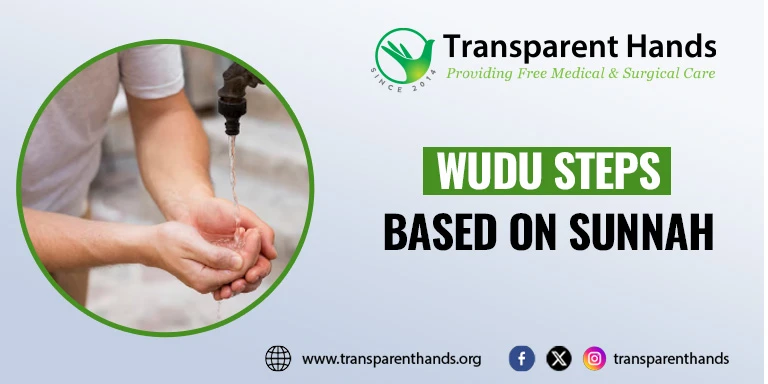
Islam places a strong emphasis on purity and cleanness. The concept of purity extends beyond the physical sphere. Islam requires believers to maintain physical purity, particularly before praying. Therefore, physical cleanliness is a priority that all Muslims must uphold. In this article, we will examine various sources from the Quran and the Hadith that highlight the importance of cleanliness. We will also discuss how to perform ablution, known as wudu. By regularly practicing ablution, we not only enhance our spiritual experience but also promote our overall health and well-being. Adhering to these guidelines reinforces a sense of discipline in our lives. To ensure that you are performing prayers according to Sharia recommendations, you should learn how to do Wudu according to the Sunnah. Note that Wudu is also referred to as wazoo in Urdu. Furthermore, the Wudu steps mentioned in this article are derived from Hadith and the Prophetic traditions.
The Importance of Wudu in Islam
The importance of ablution (Wudu) can be understood by the following Hadith:
Abu Malik Al-Ash`ari narrated that the Messenger of Allah said: “Al-Wudu is half of faith, and All praise is due to Allah (Al-Ḥamdulillāh) fills the Scale, and Glory is to Allah and all praise is to Allah (Subḥān Allāh wal-Ḥamdulillāh)’ fill” – or – “fills what is between the heavens and the earth, and Salat is light and charity is an evidence, and patience is an illumination, and the Quran is a proof for you or against you. And all people shall come to the morning selling their souls, either setting it free or destroying it.” (Jami` at-Tirmidhi, 3517)
Find purity of mind and heart by donating.
What Is Wudu & Why is It Necessary?
According to a Hadith, Wudu or ablution is a mandatory act before saying the Namaz or reading the Quran. Without proper Wudu, prayers are invalidated.
The Messenger of Allah (ﷺ) said: “The prayer of a person who does not perform ablution is not valid, and the ablution of a person who does not mention the name of Allah (in the beginning) is not valid.” (Sunan Abi Dawud, 101)
However, the importance of Wudu extends beyond prayers. Believers are encouraged to maintain physical cleanliness and to remain in a state of Wudu as often as possible. It is also essential to understand how to do Wadu correctly and ensure that no steps are overlooked.
According to a Hadith narrated by Nu`am Al-Mujmir: “Once I went up the roof of the mosque, along with Abu Huraira. He perform ablution and said, “I heard the Prophet (ﷺ) saying, “On the Day of Resurrection, my followers will be called “Al-Ghurr-ul- Muhajjalun” from the trace of ablution and whoever can increase the area of his radiance should do so (i.e. by performing ablution regularly). ” (Sahih al-Bukhari, 136)
Wudu Steps Explained in Hadith
Given the importance of Wudu, we should know and follow the prescribed Wudu steps, which are taught by the Prophet (ﷺ). According to a Hadith:
“’Abdullah b. Zaid b. ‘Asim al-Mazini reported: He saw Allah’s Messenger (ﷺ) perform the ablution. He rinsed his mouth then cleaned his nose, then washed his face three times, then washed his right hand thrice and then the other one, thrice. He then took fresh water and wiped his head and then washed his feet till he cleaned them.” (Sahih Muslim, 236)
Your generosity is someone’s lifeline.
Step by Step Wudu Guide
The following is the Step-by-Step Wuddu Guide that will help you perform Wudu or Wazoo according to the recommendations of Sharia.
STEP 1: Niyyah, or intention, is the first step in performing Wudu. The Niyyah can be made silently, while being mindful of the actions that follow. One should say ‘Bismillah’ (In the name of Allah (SWT)) before starting the Wudu.
Wash your hands. Use your left hand to wash your right hand, making sure to spill water up to your wrists. Repeat this action three times. Don’t forget to pour water between your fingers. Then, wash your left hand three times following the same process.
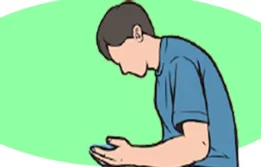
STEP 2: Fill your right hand with water and rinse your mouth three times with it. Use the water to clean your mouth and spit it out afterward.
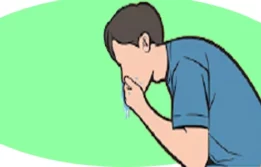
STEP 3: Rinse your nose three times. Use your right hand to cup water and inhale it slightly. With your left hand, blow out the water and repeat the process three times. Make sure the water is safe and free of harmful bacteria.
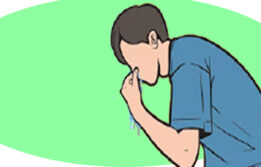
STEP 4: Next, wash your face with water. Cup your hands to hold the maximum amount of water possible and use it to cleanse your face, starting at the forehead and moving down to the jawline and chin. Be sure to wash your beard thoroughly as well.

STEP 5: Wash your arms, beginning with your right arm. Start from your fingertips and work your way up to your elbows. Repeat this three times.
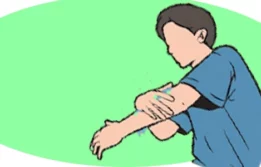
STEP 6: Perform Masah. Masah is the act of cleansing your head. It is an important Wudu Step. Wet your hands and shake off any excess water. Move your hands through your hair from your forehead to the back of your head and then back to your forehead. Be sure to remove the cap before performing Masah. For those with long hair, it is not necessary to clean the entire length of the hair. You also don’t need to go past the foreneck. Clean your ears using your fingers as well.

STEP 7: Wash your feet. Begin by cleaning your right foot. Start at the tips of your toes and move up to the ankle. Be sure to clean the area between your toes thoroughly. Repeat this process three times.
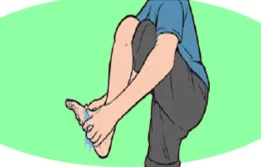
Transparent Hands
Transparent Hands is a non-profit organization that provides free surgical and medical care to the most deserving Pakistani patients. We have provided treatments to over 250,000 Pakistanis who lack access to quality healthcare. We also organize free medical camps in low-income areas to ensure that the needy receive surgical and medical assistance in their communities. The medical camps organized by Transparent Hands provide free medical check-ups, diagnostic tests, and medicines. We also arrange preventive healthcare sessions to educate about common diseases and preventive measures. We also accept Zakat, Sadaqah, and other donations in accordance with Shariah rulings and spend them with complete transparency and dedication. Donate to Transparent Hands today to make a difference as well as assist deserving individuals.
Conclusion
In this article, we discussed what is Wadu and why it is such an important ritual. Following the order of Wudu Steps will allow you to follow the Sunnah of the Prophet (ﷺ) and perform this essential duty with diligence. The Quran tells us that Allah (SWT) loves those who repent and practise cleanliness. Islam emphasizes spiritual and physical cleanliness. Wudu is one of the most basic and significant rituals in Islam. It is a mandatory practice. The Wudu steps begin with intention (Niyyah), washing hands, rinsing the mouth and nose, washing the face and arms, performing Masah, and washing both feet. Wudu allows us to maintain physical cleanliness and adhere to the prescribed discipline of the Sharia.











Leave a Reply